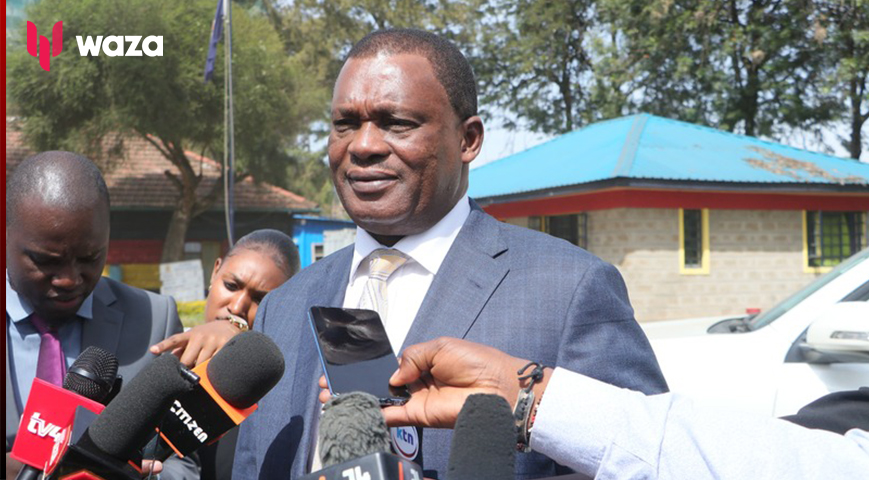Former police spokesperson Charles Owino has dismissed Public Service Cabinet Secretary Justin Muturi's claims that the National Intelligence Service (NIS) abducted his son, describing the remarks as "careless" and a breach of President William Ruto’s trust.
Speaking on Citizen TV’s *JKlive* show, Owino criticized Muturi, a former Attorney General and member of the National Security Council, for making sensitive disclosures publicly. He argued that Muturi should have exercised caution, considering his seniority and familiarity with national security matters.
“It is a careless statement from a minister… he has breached the President’s trust. While differences may exist, leaders must be careful about how they release such sensitive matters,” Owino said.

Did you read this?
He noted that even if Muturi's allegations were accurate, the CS should have respected President Ruto’s intervention in securing his son’s release instead of publicly addressing the issue. Owino emphasized the importance of restraint among leaders, warning that careless statements could risk dividing the nation.
Owino also called for the handling of abduction claims as mere allegations, cautioning against politicizing the matter. He reminded leaders of their obligation to abide by Cabinet decisions or resign if they disagree.
“We must be cautious with what we say. NIS is responsible for collecting intelligence and managing counterintelligence. It reports to the National Security Council and the President, and its actions must be handled with discretion,” Owino added.
However, Amnesty International Kenya Director Irungu Houghton, who appeared alongside Owino, disagreed with the former police spokesperson’s stance. He defended Muturi, arguing that the CS’s position and credibility lent weight to his statement.
“Muturi is not an ordinary individual; he is a credible and authoritative figure in government. His claims cannot simply be dismissed. The Director General of NIS or the head of state should clarify what truly transpired,” Houghton said.
The debate highlights differing perspectives on handling sensitive national security issues and the balance between transparency and confidentiality in public service.









